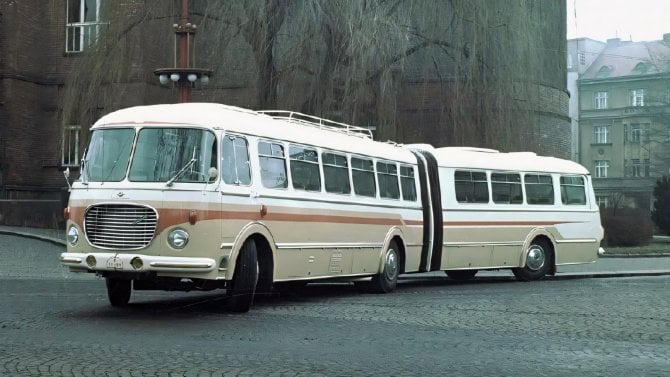...
By Jeff Mason and Marcin Grajewski
BRUSSELS, June 21 (Reuters) - European Union leaders faced a showdown at a summit on Thursday over efforts to reform the bloc's creaking institutions, but chances of agreement seemed to rise after chief critic Poland softened its tone.
British Prime Minister Tony Blair, at his final EU summit, said prospects for a deal to launch negotiations on a new treaty were only "touch and go". Polish Prime Minister Jaroslaw Kaczynski put the odds at 50-50.
London and Warsaw could yet scupper German Chancellor Angela Merkel's drive to replace the defunct EU constitution after years of wrangling over the division of power between Brussels and member states, and between big and small nations.
Merkel, chairing the summit under Germany's EU presidency, pleaded for the 27 leaders to be constructive.
"I hope that all work in a spirit that will allow us to achieve a fair agreement because the EU needs to be effective in order for us to solve the many problems in the world together," she told reporters at a meeting of conservative leaders.
"Each and every country will be taken very seriously as regards their concerns," she told reporters at the start of the two-day summit.
Polish negotiator and presidential adviser Marek Cichocki said conditions had been created for a successful conclusion to the summit, although he said some issues might have to be held over to an inter-governmental conference.
Asked what would happen if a solution was not found, Polish negotiator Ewa Osniecka-Tamecka said: "We will!"
Poland wants changes to the EU's voting system which it says favours big countries, especially Germany, at its expense.
Nearly all the other EU countries favour keeping the decision-making formula set out in the constitution draft rejected by French and Dutch voters in 2005.
"CONSTITUTIONAL STRIP-TEASE"
"We should stop this constitutional strip-tease. We've gone far enough," said Austrian Foreign Minister Ursula Plassnik, whose country is one of 18 which ratified the original charter.
Britain was also posing problems. It said the treaty must not make the bloc's Charter of Fundamental Rights, including a broadly defined right to strike, legally binding on itself.
"We need to have it belt and braces bolted down that it will not change British law," Blair told The Times of the charter. "This is what I need if you want me to agree."
Britain also wants to shrink the powers of a proposed EU foreign minister and change the title.
European Commission President Jose Manuel Barroso told reporters he believed there would be an agreement "because if we don't get the deal, we will all be losers".
Failure to agree at talks likely to run into Saturday would be a huge setback for the bloc, two years after French and Dutch voters rejected the constitution.
Luxembourg Prime Minister Jean Claude Juncker said there would be no room to enlarge the EU further unless leaders reached a deal to make its institutions run more efficiently.
A breakdown might prompt a smaller group of member states to press ahead with closer integration, leaving others behind, and make richer countries more reluctant to aid poorer newcomers.
Juncker, the EU's elder statesman, suggested a compromise to give states just short of a blocking minority an emergency brake to postpone decisions in rows over the bloc's affairs and force more negotiations.
Kaczynski told the Rzeczpospolita newspaper on Thursday that some progress had been made but Warsaw would have to "draw conclusions" if its demands were not understood.
Blair's office made clear Merkel had not persuaded him to change his position during a telephone conference on Thursdayand Blair's spokesman said the prime minister would be ready to "walk away from a deal."
Eighteen EU members have ratified the constitutional treaty, but there is broad agreement to cut it significantly, to allow France, the Netherlands and Britain to avoid risky referendums.
Some key institutional arrangements are set to be kept, such as creating a president of the European Council of governments elected for 2-1/2 years instead of the current six-month rotating presidency which has grown unwieldy in the enlarged EU. (additional reporting by David Clarke in London, Jon Boyle in Paris, Adam Jasser in Warsaw, Jan Lopatka in Prague, Noah Barkin, Francois Murphy and Axel Bugge in Brussels)
Keywords: EU TREATY/




 V Evropě se objevil návrh na to, jak od elektromobilistů vybrat peníze, když neplatí daně z paliva. Zdanit se má soukromé nabíjení i ujeté kilometry
V Evropě se objevil návrh na to, jak od elektromobilistů vybrat peníze, když neplatí daně z paliva. Zdanit se má soukromé nabíjení i ujeté kilometry
 Test Citroen C3 Aircross: Na velikosti záleží
Test Citroen C3 Aircross: Na velikosti záleží
 Po stopách prototypů československých užitkových vozidel. Dochovalo se jich jen minimum
Po stopách prototypů československých užitkových vozidel. Dochovalo se jich jen minimum
 Nastavoval intenzitu elektronické cigarety za volantem, dostal pokutu. Podle soudu je e-cigareta mobil
Nastavoval intenzitu elektronické cigarety za volantem, dostal pokutu. Podle soudu je e-cigareta mobil
 Ojetiny dál zdražují, „Áčka“ jich přesto prodávají rekordní množství. Podle jejich šéfky roste pomalu i zájem o elektromobily
Ojetiny dál zdražují, „Áčka“ jich přesto prodávají rekordní množství. Podle jejich šéfky roste pomalu i zájem o elektromobily
